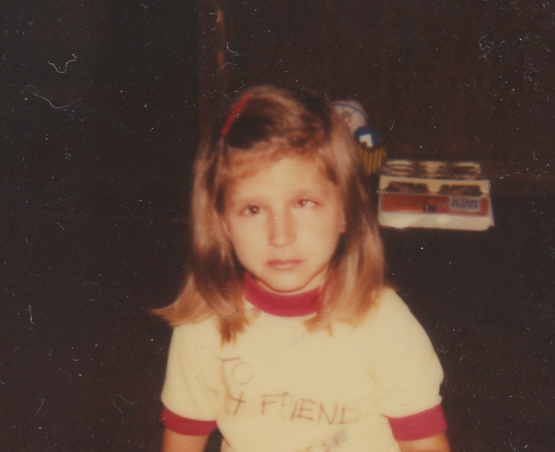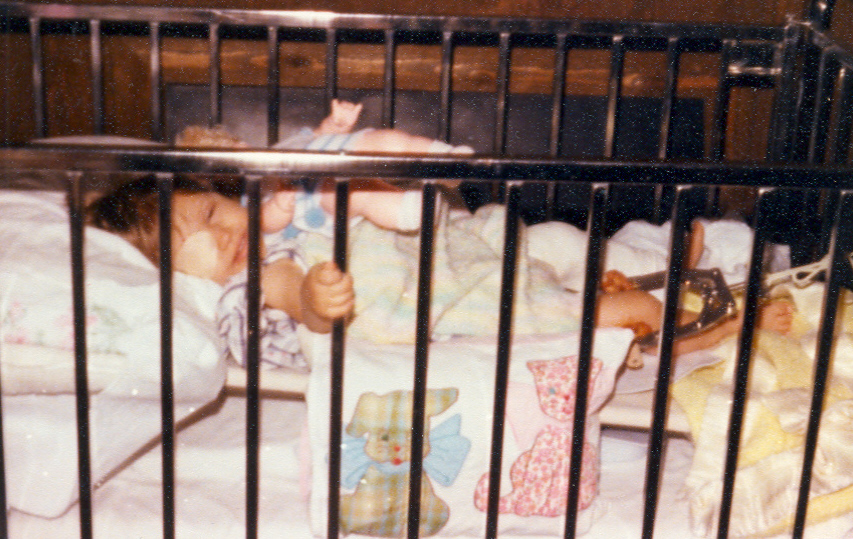
This year I’m celebrating Disability Pride Month. Disability Pride Month takes place in July to commemorate the signing of the Americans with Disabilities Act or ADA. (Only the military rivals the Disability Community’s ability to use acronyms.) ADA was signed on July 26th, 1990. While I generally focus the blog on my son, this month I’m turning the lens on me.
Growing up, my family never used the word disability. It wasn’t part of our vocabulary despite the fact that my eyes were clearly very different and I wore a patch all through elementary school. Despite the fact that I spent time in traction and a body cast, that had a lasting effect on my body. I had 5 surgeries that I know by age 10. I was born with severe strabismus and bilateral hip dysplasia. Nope, we never uttered the word disability.
I never questioned it. I just assumed it was my parents no nonsense view of the world. However, I think in the back of our minds, it was because disability applied to someone else. It applied to someone in a wheel chair or someone with an intellectual or mental issue. Why wouldn’t we embrace the word?
People have gone out of their way to not use the word disability. They’ve used handi-capable, special needs, or differently abled. Its in the name of putting a positive spin? Yet if you view disability with pride and positive feelings, then there is no need for these other words. In fact, the disability community views these as ableist.
Ableism is defined as discrimination or social prejudice against people with disabilities based on the belief that typical abilities are superior. It can manifest as an attitude, stereotype, or an outright offensive comment or behavior. It can be a Kindergarten teacher pushing down on your right leg as you try to sit crisscross-applesauce while yelling at you to sit right. It wasn’t possible. It hurt.
So, I’m celebrating Disability Pride Month. It was this amazing post NY Times opinion video that gave me a little boost. I was watching it through tears. Every year in elementary school the teacher would put me in front of the class and have me explain why I was wearing an eye patch. Somehow this was to save me from having to explain to kids individually. I never had good explanations to describe my eye disability. Lazy eye was sadly the best I could do, and I absolutely hated that term. This video was amazing and visually showed the world how I see. Maybe it was ok to say I have a disability.
I guarantee your eyes won’t cross if you read too much. Just give me that one phrase today. At some point I will learn to embrace pictures of me. Give me time. I miss contact sports, but the pins holding my left hip together tell me otherwise. Disability Pride for me is embracing a word, I was taught to ignore. It is embracing my own history and also to learn from others.
Disability Rights has a long way to go. We need new policies. We need to move away from a very white centric way of viewing solutions. We need to look at how disability intersects with other civil rights struggles, so we truly embrace inclusivity. We need to keep the conversations going. Keep talking, but more importantly keep listening.

